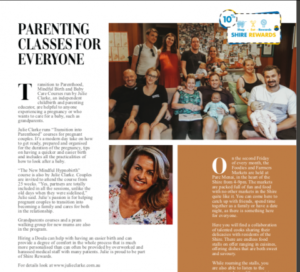Baby-Friendly hospitals make special efforts to support mothers to breastfeed.
The World Health Organization/UNICEF Baby-Friendly Hospital Initiative, endorsed by the American Academy of Pediatrics, recognizes hospitals that follow the Ten Steps to Successful Breastfeeding.
When hospitals have more of the Ten Steps to Successful Breastfeeding in place, mothers breastfeed longer.
The Baby-Friendly Ten Steps to Successful Breastfeeding
- Have a written breastfeeding policy that is routinely communicated to all health care staff.
- Train all health care staff in skills necessary to implement this policy.
- Inform all pregnant women about the benefits and management of breastfeeding.
- Help mothers initiate breastfeeding within 1 hour of birth.
- Show mothers how to breastfeed and how to maintain lactation, even if they are separated
from their infants. - Give newborn infants no food or drink other than breast milk, unless medically indicated.
- Practice “rooming in”— allow mothers and infants to remain together 24 hours a day.
- Encourage breastfeeding on demand.
- Give no pacifiers or artificial nipples to breastfeeding infants.
- Foster the establishment of breastfeeding support groups and refer mothers to them on discharge
from the hospital or clinic.
Hospitals can:
- Partner with Baby-Friendly hospitals to learn how to improve maternity care.
- Use CDC’ s Maternity Practices in Infant Nutrition and Care (mPINC) survey data to prioritize changes to improve maternity care practices.
- Stop distributing formula samples and give-aways to breastfeeding mothers.
- Work with community organizations, doctors, and nurses to create networks that provide at-home or clinic-based breastfeeding support for every newborn.
- Become Baby-Friendly.
Doctors and nurses can:
- Help write hospital policies that help every mother be able to breastfeed.
- Learn how to counsel mothers on breastfeeding during prenatal visits, and support breastfeeding in the hospital and at each pediatric doctor’s visit until breastfeeding stops.
- Include lactation consultants and other breastfeeding experts on patient care teams.
- Coordinate lactation care between the hospital and outpatient clinic.
Mothers and their families can:
- Talk to doctors and nurses about breastfeeding plans, and ask how to get help with breastfeeding.
- Ask about breastfeeding support practices when choosing a hospital.
- Join with other community members to encourage local hospitals to become Baby-Friendly.
The Surgeon General’s Call to Action to Support Breastfeeding ( http://www.surgeongeneral.gov
/topics/breastfeeding/ )
Baby-Friendly Hospital Initiative in the U.S ( http://www.babyfriendlyusa.org/ )
MedlinePlus – Breastfeeding ( http://www.nlm.nih.gov/medlineplus/breastfeeding.html )
MedlinePlus – Obesity ( http://www.nlm.nih.gov/medlineplus/obesity.html )
MedlinePlus – Obesity in Children ( http://www.nlm.nih.gov/medlineplus/obesityinchildren.html )
MedlinePlus – Body Weight ( http://www.nlm.nih.gov/medlineplus/bodyweight.html )
MedlinePlus – Weight Control ( http://www.nlm.nih.gov/medlineplus/weightcontrol.html )
The Community Guide – Obesity Prevention and Control ( http://www.thecommunityguide.org
/obesity/ )







